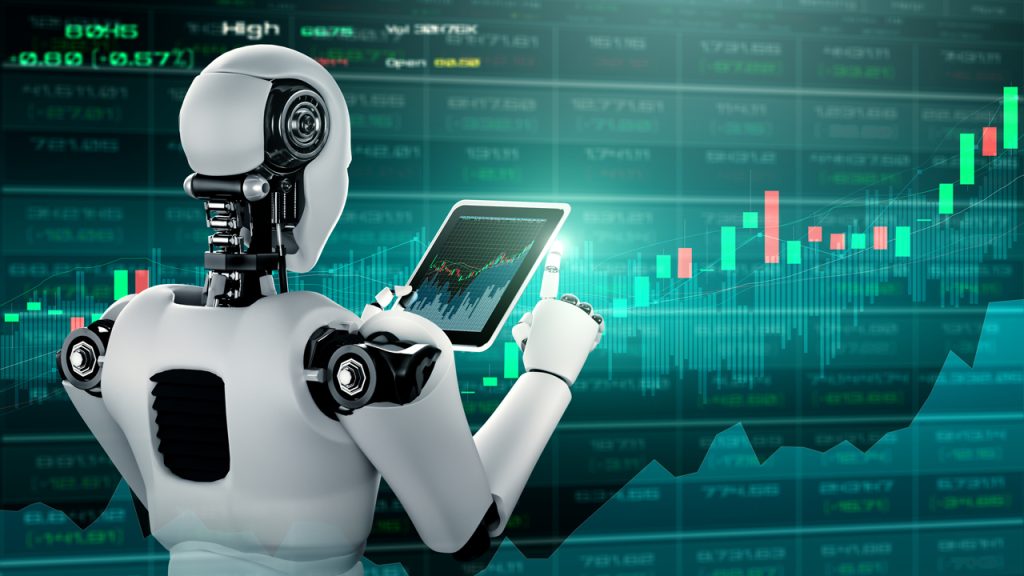Online trading is one of the sectors most precious by artificial intelligence, which has emerged as a transformative force in numerous other industries. The technique traders appoint with monetary markets is set to suffer a revolutionary change with the beginning of artificial intelligence technologies into trading platforms and strategies. Artificial intelligence can optimize trading strategies, improve real-time decision-making processes, and improve market analysis through visit the flow bank, machine learning, and data analytics. Processing enormous volumes of data at earlier unheard-of speeds is one of artificial intelligence’s most attractive compensation for online traders. This aptitude gives traders a spirited edge in the quick-paced world of economic markets by enabling them to spot patterns and trends that would be unfeasible for a human to perceive. Artificial intelligence-driven mechanical trading systems can perform trades with accuracy and competence, lowering the option of human error and exciting partiality.
Artificial Intelligence’s Revolutionary Potential in Online Trading
Due to its advanced capabilities in data analysis, decision-making, and automation, artificial intelligence Artificial intelligence has drastically changed the online trading landscape. The following are some significant novel features of Artificial intelligence in online trading:
Trading Algorithms:
With algorithmic systems that can execute trades with previously unheard-of speed and accuracy, artificial intelligence has completely changed the way that trading is done. These algorithms inspect vast volumes of real-time market data, considering multifaceted trends and openings that human trader’s strength misses. These algorithms rapidly execute trades, maximizing returns and optimizing trading strategies by following pre-established criteria and rules. By ensuring trades are perform at best prices and frequencies further than human ability, artificial intelligence’s efficiency in algorithmic trading enables businesses to take benefit of brief market opportunities that could only be broken at lightning speed.
Analytical prediction:
When it comes to trading, artificial intelligence uses mechanism knowledge to perform prognostic analytics, which uses chronological data to project future price actions. These algorithms type during large datasets to uncover controlled trends and pattern that would be missed by a person analyst, giving trader’s key in succession about how the publicize is acting. Straight forecasting enables traders to forecast changes in the market and proactively alter their positions, potentially increasing profits and dipping risks related to market unpredictability. Consequently, traders can take a more practical approach to trading strategies by using artificial intelligence-powered extrapolative analytics to make well-informed decisions based on data-driven imminent.
Evaluation of Sentiment:
The examination and construal of market sentiment from sources like social media, news articles, and online forums is a critical role of artificial intelligence in feeling analysis. Traders can add imperative insights into sentiment-driven advertise dynamics by using these systems to charge the in general sentiment and viewpoints of investors. Traders are talented to predict changes in shareholder actions and sentiment-driven price travels by paying awareness to market sentiment. By aligning their positions with the emotion of the market, traders can take gain of new opportunities or reduce latent risks resulting as of abrupt changes in depositor sentiment. This allows traders to adjust their policy as needed.
Trading at High Frequency:
High-frequency trading has been absolutely distorted by artificial intelligence, which allows companies to implement a high volume of trades at extremely speedy speeds. Artificial intelligence algorithms find and grab hold of market opportunities that are fleeting by meting out massive volumes of data in microseconds. These algorithms use machine learning to make snap decisions, taking advantage of minute price differences in several markets. Artificial intelligence’s quickness and effectiveness in high-frequency trading boosts overall market dynamics, price discovery, and market liquidity.
Artificial Intelligence’s Risks and Difficulties for Online Trading
Consideration must be given to the following risks and difficulties that artificial intelligence in online trading presents:
Algorithmic Mistakes:
Trading algorithms powered by artificial intelligence are programmed to make choices by evaluating past data and intricate mathematical models. These algorithms are not error-proof, though. Programming errors or unforeseen interactions between various algorithmic components can result in bugs in the code, which can cause serious disruptions to the financial markets. A flawed algorithm, for instance, might execute trades at the wrong volumes or prices, resulting in trader losses or abrupt changes in market prices. It’s critical to identify and fix these mistakes as soon as possible.
Regulatory Obstacles:
The swift advancement of technology and its worldwide influence pose formidable obstacles for regulatory bodies when it comes to overseeing Artificial Intelligence in trading. It can be difficult to assign blame for algorithmic mistakes or unethical actions, especially when multiple parties are involved and artificial intelligence systems function across national boundaries. In order to promote innovation and market efficiency, regulators must modify current frameworks to handle new risks brought about by artificial intelligence, such as algorithmic biases or market manipulation. To generate successful policy that carry impartiality, simplicity, and depositor safety in AI-driven trading environments, regulators, monetary institutions, and expertise providers must work mutually.
Conclusion
Conclusively, the opening of artificial intelligence into online trading has ushered in a new era of occasion and difficulties. We have seen during this investigation how artificial intelligence technologies have improved market analysis capabilities, simplified decision-making procedures, and transformed trading strategies. These developments give traders previously unheard-of chances to take advantage of inefficiencies in the market, automate repetitive chores, and negotiate intricate financial environments more accurately and effectively than before. Artificial intelligence in online trading does, however, come with some extremely serious risks and considerations in addition to these ground-breaking advantages. The use of algorithmic trading systems increases the risk of system failures, algorithmic biases, and market volatility.
